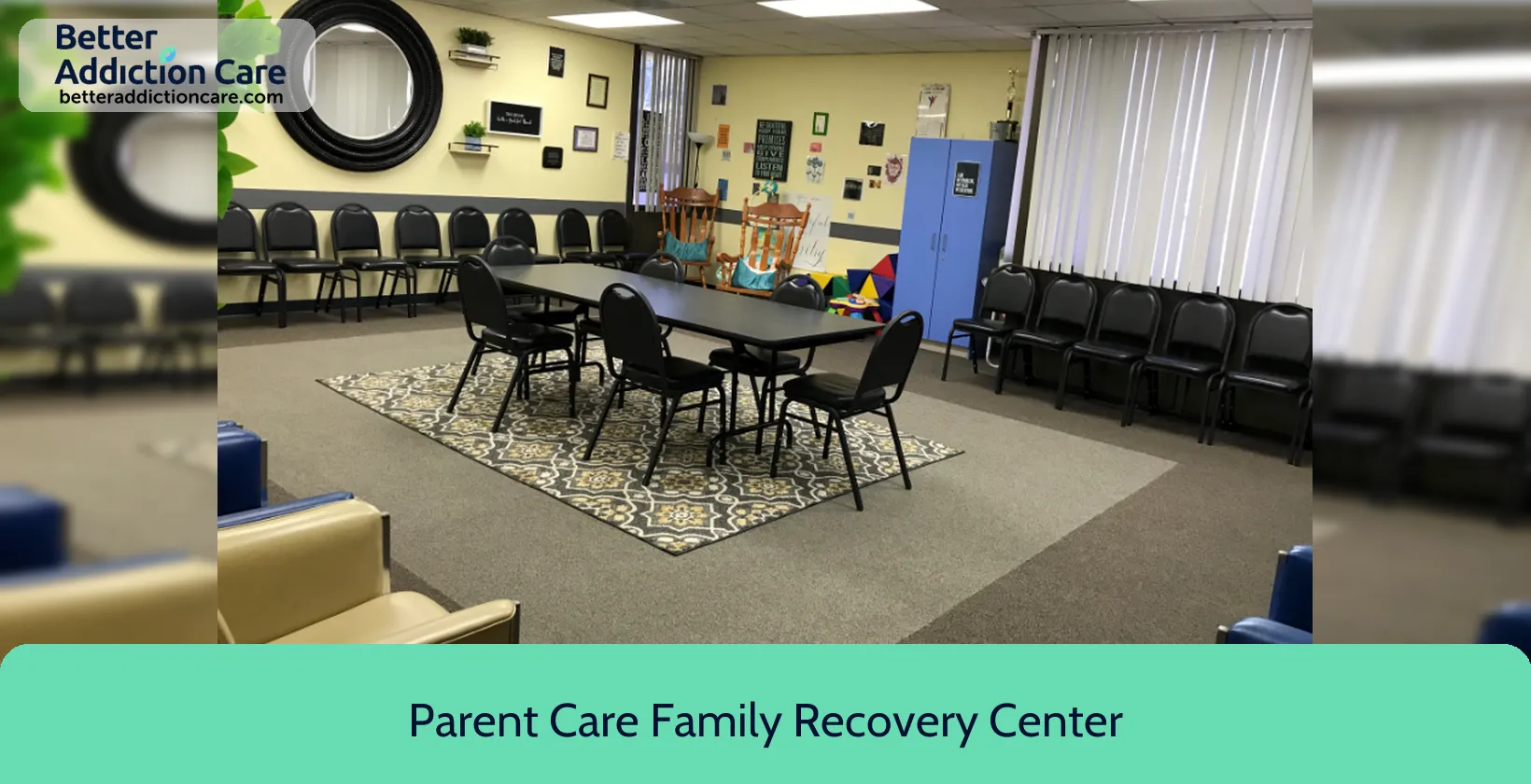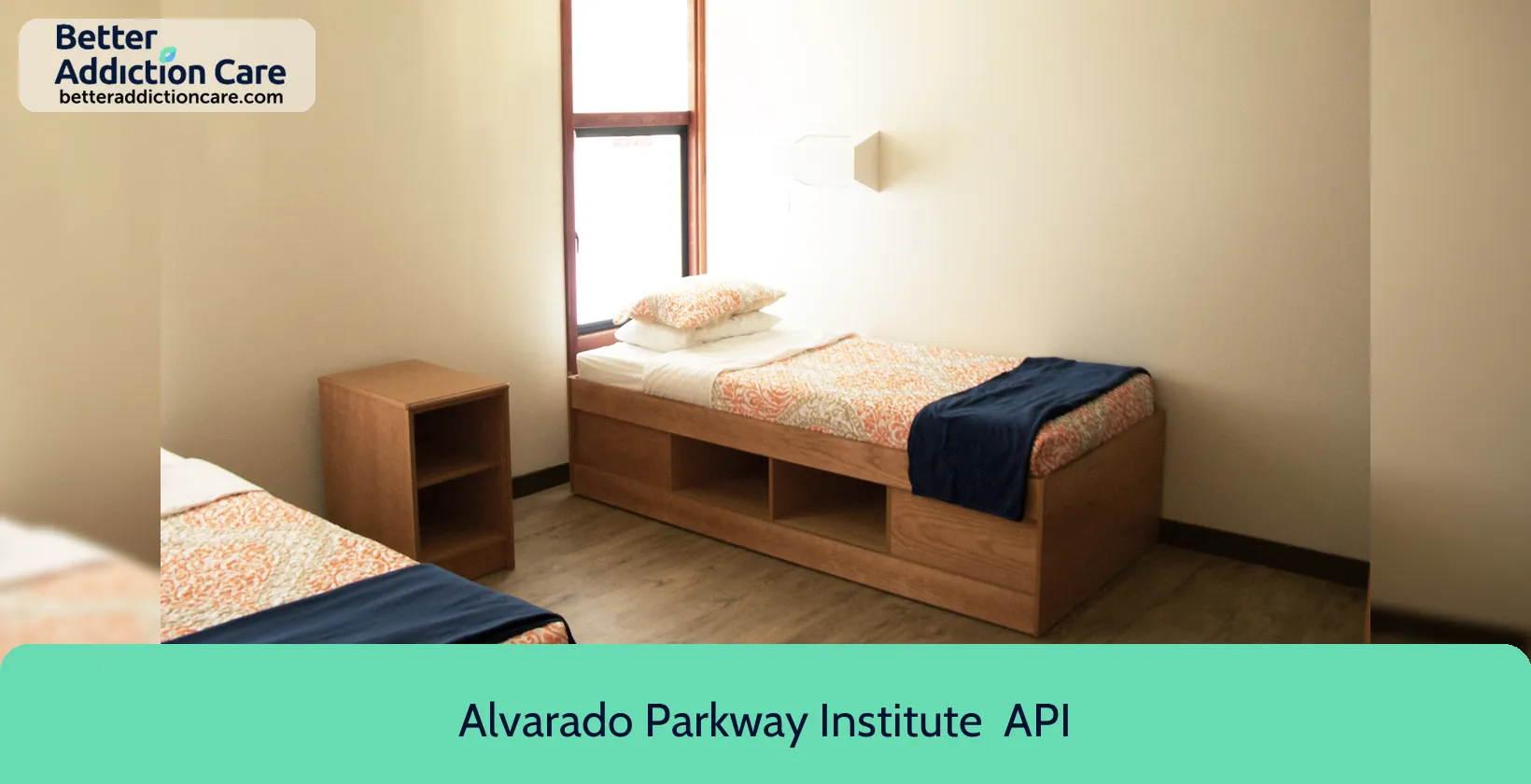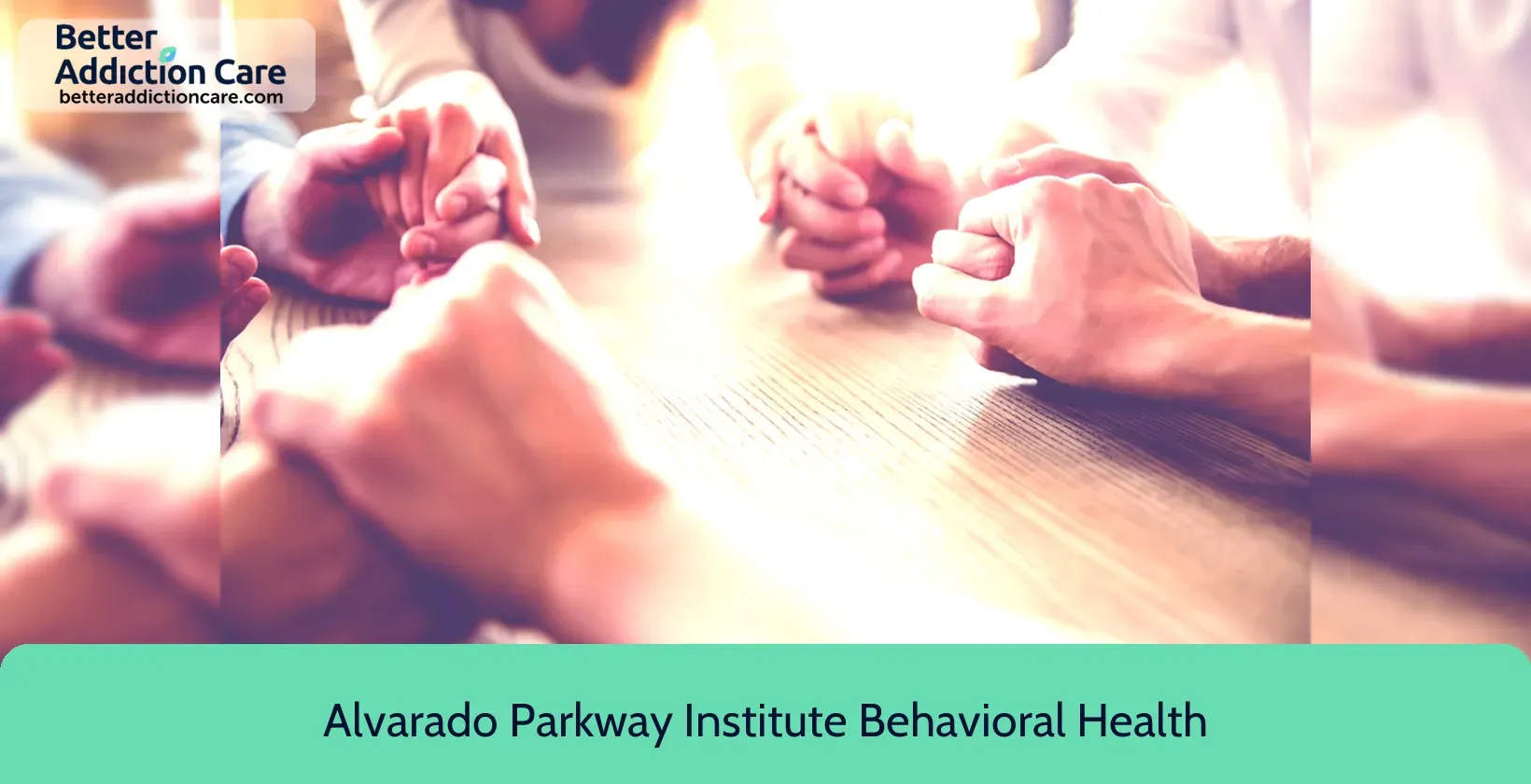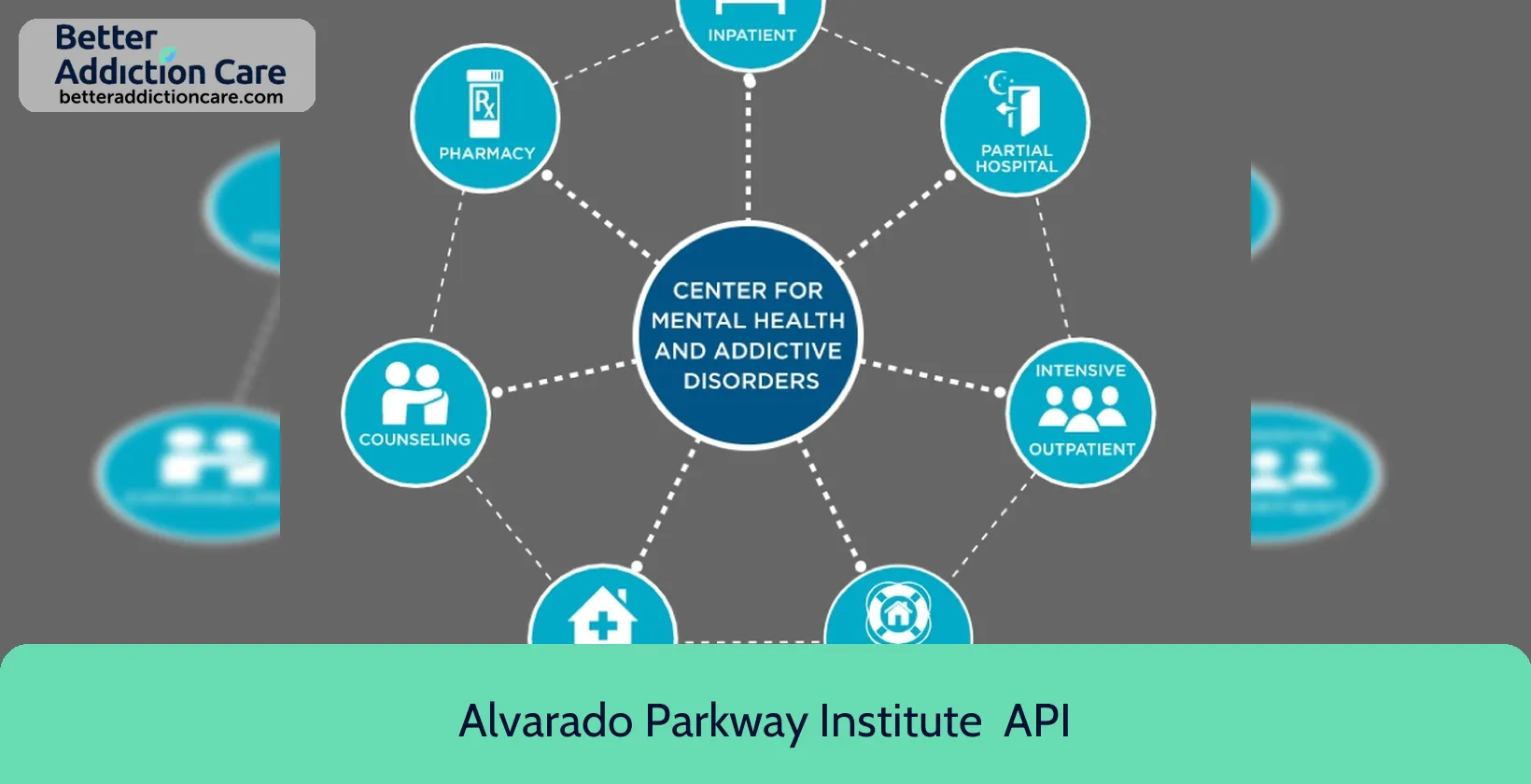Alvarado Parkway Institute - API
Overview
Alvarado Parkway Institute, located in La Mesa, California, is a leading provider of comprehensive mental health and addiction care, offering a range of services in both inpatient and outpatient settings. The institute is dedicated to meeting the diverse needs of its clients, including specialized programs for first responders and older adults, ensuring that each individual receives personalized care tailored to their specific situation.
The inpatient program at Alvarado Parkway Institute serves individuals aged 18 and older, addressing issues related to addiction, mental health disorders, and dual diagnosis. Each client receives an individualized care plan, designed to provide the most personalized and effective treatment. This approach allows the multidisciplinary team to focus on the unique needs of each patient, ensuring that they receive the highest level of care.
Within the inpatient setting, a variety of treatment modalities are utilized, including Cognitive Behavioral Therapy (CBT), which helps clients identify and change negative thought patterns. Additionally, clients are taught relaxation techniques and relapse prevention strategies, empowering them with the tools needed to maintain long-term recovery and mental well-being.
For those who require a structured yet less intensive level of care, Alvarado Parkway Institute offers a Partial Hospitalization Program (PHP). This program runs five days a week, from 9 a.m. to 3 p.m., and includes group therapy, stress management, and other therapeutic activities designed to support recovery in a more flexible environment.
The Intensive Outpatient Program (IOP) provides further flexibility, running up to three times a week for three hours per day, with an evening program available to accommodate different schedules. The IOP offers a variety of therapeutic options, including Cognitive Behavioral Therapy, Trauma Therapies, Anger Management, and Medication Management, allowing clients to continue their recovery while balancing other life responsibilities.
Alvarado Parkway Institute is accredited by The Joint Commission, a testament to its commitment to maintaining the highest standards of care and continuously improving its services to better meet the needs of its clients.
Alvarado Parkway Institute - API at a Glance
Payment Options
- Medicaid
- Private health insurance
- Cash or self-payment
- Medicare
- Federal military insurance (e.g., TRICARE)
Assessments
- Comprehensive mental health assessment
- Comprehensive substance use assessment
Age Groups
- Adults
- Young adults
Operation
- Private for-profit organization
Highlights About Alvarado Parkway Institute - API
6.84/10
With an overall rating of 6.84/10, this facility has following balanced range of services. Alcohol Rehabilitation: 8.00/10, Drug Rehab and Detox: 6.00/10, Insurance and Payments: 6.27/10, Treatment Options: 7.09/10.-
Alcohol Rehabilitation 8.00
-
Treatment Options 7.09
-
Insurance and Payments 6.27
-
Drug Rehab and Detox 6.00
Accreditations
The Joint Commission:

The Joint Commission accreditation for addiction and behavioral health signifies that a facility has met rigorous standards in patient care, treatment, and safety. This recognition assures patients and professionals of the facility's commitment to providing high-quality, evidence-based care in the fields of addiction and behavioral health, fostering trust and confidence in their services.
Treatment At Alvarado Parkway Institute - API
Treatment Conditions
- Mental health treatment
- Alcoholism
- Opioid Addiction
- Substance use treatment
- Co-occurring Disorders
Care Levels
- Partial Hospitalization Program
- Intensive outpatient treatment
- Detoxification
- Aftercare
- Outpatient
Treatment Modalities
- Family counseling
- Individual psychotherapy
- Cognitive Behavioral Therapy
- Dialectical Behavior Therapy
- Nicotine replacement
Ancillary Services
Languages
- Spanish
Special Programs
- Clients who have experienced trauma

Additional Locations
Get Help Now
Common Questions About Alvarado Parkway Institute - API
Contact Information
Other Facilities in La Mesa

7.08

6.59

6.88
DISCLAIMER: The facility name, logo and brand are the property and registered trademarks of Paradise Detox, and are being used for identification and informational purposes only. Use of these names, logos and brands shall not imply endorsement. BetterAddictionCare.com is not affiliated with or sponsored by Paradise Detox.



